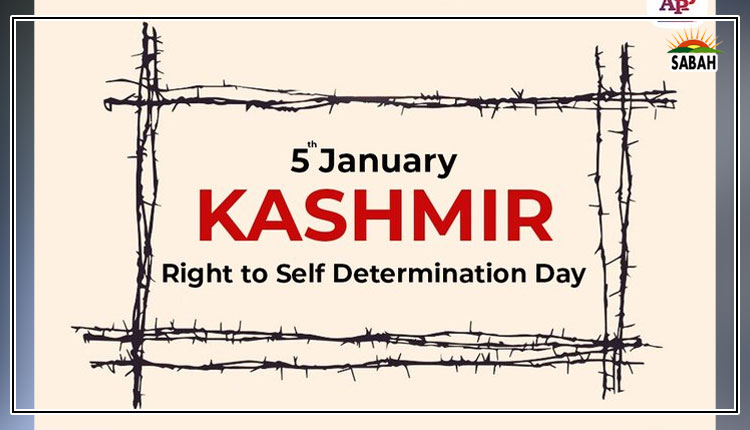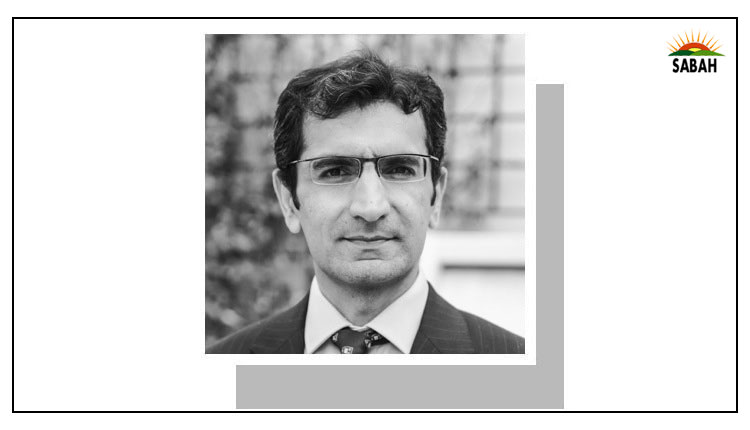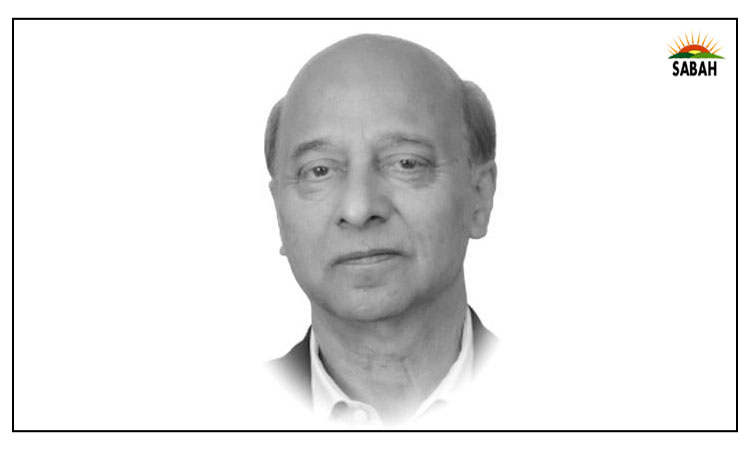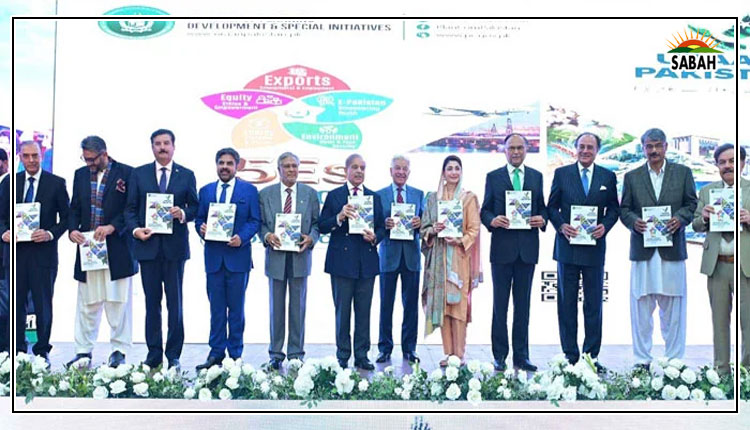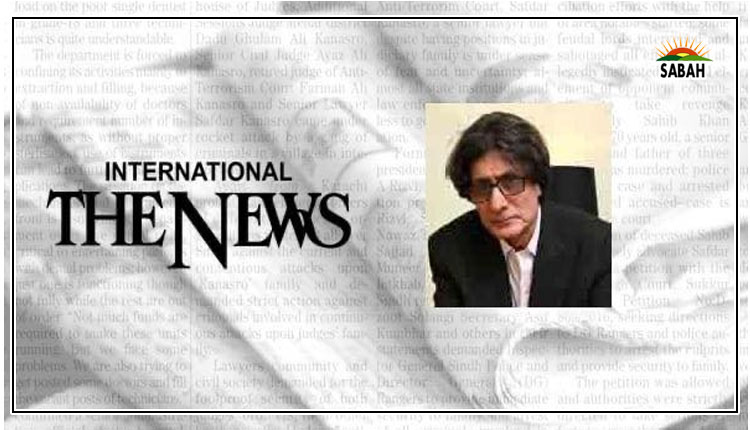Plunging back into the past…Raoof Hasan
The monstrous regime change experiment was a local fabrication which found ample resonance with some foreign forces. This was pushed through by moving a vote of no-confidence executed by disbursing tonnes of pelf and inducements.
It will, however, remain a humiliating chapter in our national history regarding how those who have nothing to do with governing the country have dictated its fate through eventful decades, thus forcing it to remain captive in the clutches of decadent influences perpetrated by a few inflexible and highly arrogant mindsets.
The regime change experiment was not an act unto itself. It is the aftereffects of this wicked enactment which have started visiting us with disastrous consequences. The decision to stay away from the Multilateral Conference of Secretaries of the Security Councils of regional countries to discuss Afghanistan, held recently in Moscow, marks only the beginning of a sequence of immensely damaging repercussions which will likely define our conduct in the future.
The conference was attended by representatives from China, Iran, India, Tajikistan, Turkmenistan, Kazakhstan, Kyrgyzstan, and Uzbekistan with Russia as the host. The Foreign Offices self-effacing plea that Pakistan will continue to participate in all constructive meetings on Afghanistan, and the insinuation that it had abstained because of the presence of India at the conference, makes the decision even more embarrassing.
Pakistan, thus, became the lone regional country to earn the notoriety of staying away from a huddle to discuss and find efficient solutions that are adequate to the challenges and threats emanating from the territory of Afghanistan a subject that is critically important for its security as also for curbing the menace of terror which, ostensibly, has origins across its western border.
In his address at the conference, while acknowledging the presence of other conflicts in the area including the one in Ukraine, President Putin elaborated that this does not reduce the significance of the situation in Afghanistan.
He went on to state that we are also worried about attempts to use the situation in Afghanistan to allow extra-regional forces to expand or build their infrastructure. These countries will create this under the pretext of countering international terrorism, but they are not doing anything that is necessary in the counterterrorism struggle. This is an ominous warning regarding such efforts which are apparently underway, spearheaded by the US and the western world, to influence the situation in Afghanistan. Who are these countries and why are they engaged in reigniting the conflict whose flames burned the region for four decades?
While there is little doubt that such efforts could well unfurl in due course of time, is it that Pakistan will become a partner and a conduit in this conflict again? It is to safeguard against such possibility, and make its case emphatically, that Pakistan should have been at the conference to secure its interests. Instead, it opted to stay away. Was this to hide its palpable complicity, or just an expression of inability to weather the pressure that it has faced to reverse the policies of the Khan era?
Let us also not forget that outreach to Russia by the Imran Khan government became a major issue which ultimately contributed to his ouster. The contents of his speech at the Islamabad Policy Dialogue regarding improving relations with Russia were repudiated by the then COAS the very next day which ultimately paved the way for a reversal of policy once Khans government had been dismantled through a regime change operation with support from the US.
Pakistan, it seems, has learnt little from its foreign policy blunders of the previous decades and is, once again, plunging perilously into bloc politics of the past. Having borne the brunt of rubbishing the invitation from the former Soviet Union to the then Pakistan prime minister for a visit to that country and, instead, proceeding to become part of the US-sponsored treaties SEATO and CENTO, fighting a war against the USSR and then the war on terror as a non-Nato ally, and generally pursuing extra-regional policies, Pakistan has remained infatuated with its ceaseless romance with the US misadventures.
While America may have escaped their direct damaging consequences, Pakistan has not. For all the years since attaining independence, it has reaped the fruits of this Ill-advised policy syndrome which keeps coming back to haunt it. This same syndrome is looming again, burying a hapless country under its expanding shadows, and enveloping it in irremediable darkness.
The consequences of the removal of the constitutional government of Khan keep growing with time. From the unceremonious reversal of key policies which were being implemented to bring benefit to Pakistan and its people or plunging the country into possible economic default and unleashing state terror on political opponents, Pakistan has been reduced to a shadow of its former self. But espousal of doom is now written as a key constituent of the national policy as it appears well beyond the reach of some actors pretending to be the government to reverse the tide.
Pakistan seems to be adrift turbulent currents of deceitful self-inflicted circumstances which are taking it further away from the foundational principles of a progressive and welfare state that was poignantly elaborated by the Quaid himself from the floor of the first constituent assembly back in 1947. That declaration of intent is unceremoniously buried at some far-flung and unknown location which can neither be reached, nor probed.
This monumental tragedy is embedded in a mala-fide policy of rendering dysfunctional, even eliminating those who care and who can make a meaningful contribution to the building of the state. Instead, power is perpetuated in the hands of those who neither have the character to be leaders of people, nor the ability to think and competence to rule.
The wonder is that we still linger on as an entity bereft of implements and relevance with a begging bowl spread out to the world for alms to sustain another day. There is neither any shame nor any breakthrough initiative to divorce this sickening syndrome. Sadly, as we plunge back into not-so-elevating a past, tomorrow becomes another day, possibly much worse than the one that we endure today.
Courtesy The News



